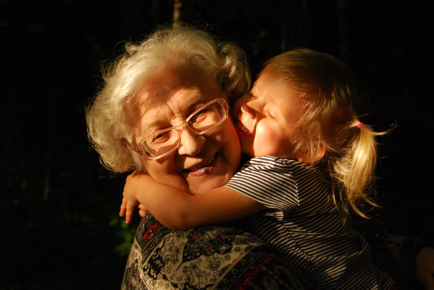Diversity and Inclusion Survey Questions: Caring Responsibilities
Advocating for the 10th Protected Characteristic
11th April 2024 by Mark Holt

Insights from Divrsity EDI Surveys
At Divrsity, our purpose has always been to help employers uncover data-driven insights that enable them to make measurable progress on workplace Diversity, Inclusion, Equity, Bias and Belonging.
One of our most cherished tenets is that diversity comes from all aspects of a person's identity (not just 9 protected characteristics), and that belonging comes when an individual is able to effectively balance all their demands and bring their best selves to their workplace.
Consequently, our Diversity and Inclusion Survey template questions include insights into individuals with different experiences at home.
As the UK's Leading EDI Survey Platform, we've run thousands of surveys. Across all these, we consistently see that caring responsibilities are highly correlated with Inclusion and Belonging, and that many organisations are blind to the struggles of employees with caring responsibilities.
Caring Responsibilites
Caring responsibilities refer to the obligation to care for someone who requires assistance due to age, illness, disability, or other reasons. This can include caring for children, elderly parents, sick or disabled family members, or even friends. According to a report by Carers UK, there are 6.5 million carers in the UK alone, and this number is expected to rise to 9 million by 2037.
Even with such a significant number of people with caring responsibilities, basic D&I surveys (particularly those that mash D&I into overall culture/engagement surveys) tend to completely ignore this attribute.
THIS IS INSANE!
Caring responsibilities have a very profound impact on an individual's work life: Carers may need to take time off work to care for their loved ones, work flexible hours, or reduce their working hours. They may also experience stress, anxiety, and other mental health issues as a result of their caring responsibilities.
From an employer's perspective, workplaces that better understand the needs of their employees and make appropriate accommodations can expect to see increased productivity, reduced turnover, and improved employee satisfaction.
Real World Experience
We recently ran a survey where those with caring responsibilities disproportionately declined to answer the question about how many days per week they work from the office.
That's a super-interesting data-point that tells us a lot about how comfortable those individuals feel in that organisation...
Caring Responsibilities Should Be A Protected Characteristic!
Currently, in the UK, caring responsibilities are not explicitly recognized as a protected characteristic under the Equality Act 2010. However, they can fall under the category of "other status", which covers any characteristic not specifically mentioned in the act. Nevertheless, this lack of explicit protection means that individuals with caring responsibilities may not receive the same level of legal protection as those with other protected characteristics.
Making caring responsibilities a protected characteristic would send a clear message to employers that they have a duty to accommodate the needs of carers. It would also provide carers with greater confidence in disclosing their caring responsibilities and requesting accommodations.
N.B. Hats-off the FCA/PRA who recently disclosed their plans to require all regulated firms with more than 250 employees to run an annual Diversity & Inclusion Survey. Their proposed questions included two very well worded questions on caring responsibilites.
What questions does Divrsity ask on Caring Responsibilities?
The best way to see ALL the demographic questions that we include in our surveys is to and create your own personalised question set. Our questions are constantly evolving based on feedback and the fast changing nature of the employee experience space; so you can always be confident that our questions will extract insight without causing offense.
If you're still here, then we currently (as of 11Apr24) have two Yes/No questions on Caring Responsiblities in the Home Life section:
- Do you have parental responsibilities for a child or children under the age of 18?
- Do you look after, or give help and support to anyone because they have long-term physical or mental health conditions or illnesses, or problems related to old age (not in a paid capacity)?
These questions have been though a lot of evolution but, as with everything in the Divrsity platform, can be completely customised (or even totally replaced) if you have a more appropriate way to ask the questions.
Real World Experience
The Divrsity AI often highlights caring responsibilities as an important organisational insight, In a recent survey the AI proposed the following theme:
Caring Responsibilities: Several respondents with caring responsibilities expressed concerns about returning to full-time office work and the lack of understanding from management regarding their needs.
Along with a recommendation:Support Flexible Working Arrangements: XXX should consider more flexible working arrangements for employees with caring responsibilities, health issues, or those who prefer remote work.
Conclusion
It's probably obvious that we're incredibly passionate about this topic. We believe that workplaces who pay attention to caring responsibilites see meaningful improvements in diversity, inclusion, and belonging; improved employee satisfaction (and thus retention), and enhanced employer reputation.
On the other hand, those who cram D&I as afterthought in their culture surveys are also culpable when their employees leave
More Blog Articles
- Since we're asking such personal questions, learn how Divrsity is Obsessed with Anonymity
- How does the Divrsity AI work?
- Use Collective Surveys in your recruitment process
- Learn why we created Divrsity
- Or explore one of the articles in our Diversity Dictionary Series:
Intersectionality,
Ableism, and
Transgender